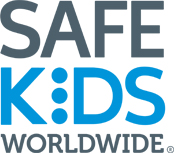You are here
Childsafe: Creating Data-Driven Programs in South Africa
While South Africa’s economy ranks first on the African continent, its roads are among the most dangerous in the world. For every 100,000 South Africans, about 32 die annually in accidents related to driving. Some 40 fatalities are recorded every day. And each year in South Africa, more than 570 children are killed in pedestrian accidents and another 250 die in car accidents. Based on data collected by the Red Cross War Memorial Children’s Hospital in Cape Town, South Africa, we know that motor vehicle accidents are the fifth leading cause of death among South African children under 12, and the second leading cause of death of adolescents.
Change is coming. Until recently, seat belts were compulsory for older children and adults, yet not for children under the age of 3. Appropriate safety seats and booster seats also have not been required, and there have been no rules against children older than 3 sitting in the front seat. All that will change when new government regulations go into effect in April 2015. Enforcement penalties are yet to be determined, but the message from the government is an important step in changing behaviors. In December 2013, the South African government also launched the “Get There, No Regrets” initiative to promote safe driving techniques nationwide and its “Scholar Patrol” program enlists local volunteers to escort more than 4 million children safely to school every day.
Childsafe has been a partner of Safe Kids Worldwide since 2007 and is also affiliated with the Child Accident Prevention Foundation of Southern Africa and the Global Road Safety Partnership South Africa, a consortium of government, business and civil society. Childsafe established the Woolworths Research and Educational Centre to help patients of the Red Cross War Memorial Children’s Hospital learn about and practice child safety. Since 1991, Childsafe has kept a database of all injured children presenting to the hospital’s trauma unit, providing a national surveillance system on childhood injuries in South Africa and a major resource for national and international organizations, non-governmental and government institutions.
Zoleka Mandela, the granddaughter of Nelson Mandela and a global road safety advocate, led the launch of the first Safe Schools project in South Africa, an initiative for the UN Decade of Action for Road Safety. Janssen, a Johnson & Johnson company, sponsored the project. The goal is to reduce child pedestrian injuries and deaths in South Africa by introducing the International Road Assessment Program (iRAP) star rating of schools concept to guide both interim small infrastructure improvements and encourage long-term sustainable investment in safety by government. Infrastructure assessment and improvement will be combined with high-quality road safety education. Due to the large concentration of children frequently exposed to vehicles and the risks that children encounter on the roads around the school, this initiative will focus on assessing safety in school zones, conducting interventions, evaluating the results and sharing what is learned. Childsafe and Safe Kids will protect the promise and future of South Africa’s children.







